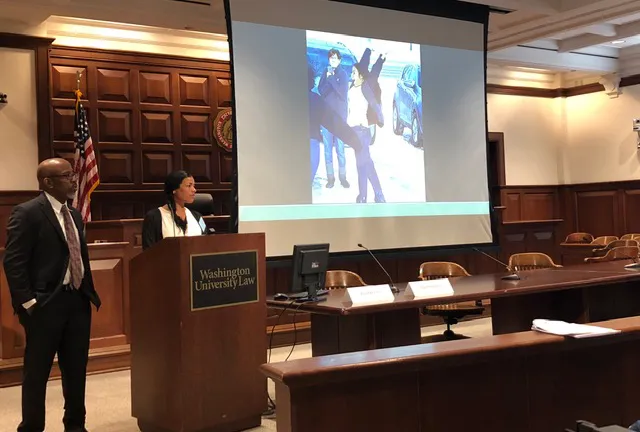A fair and impartial criminal justice system requires that all defendants have access to legal representation and other defense services. The Judiciary ensures that the Sixth Amendment right to counsel and the rights provided under the Criminal Justice Act are protected through the work of dedicated federal defenders and panel attorneys.
Criminal Justice Act Program Review
The Judicial Conference and the Administrative Office of the U.S. Courts (AO) began implementing the recommendations of the Ad Hoc Committee to Review the Criminal Justice Act (CJA), which was created by Chief Justice John G. Roberts Jr. three years ago to conduct a comprehensive review of the administration of the public defense system in the federal courts. At its September 2018 meeting, the Conference approved more than half of the 35 interim recommendations made by the committee, known as the Cardone Committee, for its chair, Judge Kathleen Cardone, of the Western District of Texas. Other recommendations remained under discussion by the Conference and its committees as the year ended. The work continued into 2019.
The Conference adopted changes that provide more consistency in the way defense attorneys are compensated for their work. It agreed to increase staff and funding for capital cases and for litigation support to assist attorneys with discovery, evaluation of forensic evidence, and investigative and other services. The Conference also took several steps to enhance training for both judges and attorneys in defense best practices; electronic discovery; and the use of experts, investigators, and other service providers in defense strategies.
The Cardone Committee finished a two-year review of the CJA program in November 2017 and sent its findings and recommendations to the Conference. Recognizing that one of its recommendations – the creation of an independent federal defender commission – would require significant review by the Judicial Conference and ultimately would require congressional action, the Cardone Committee made interim recommendations designed to address some of the issues identified in its report.
The Cardone Committee conducted 100 hours of public hearings and heard from more than 230 witnesses, including judges, federal defenders, panel attorneys, prosecutors, members of the bar, and representatives of legal organizations. It was the first comprehensive look at the federal public defense system in over 20 years. The committee was made up of federal judges, defense attorneys, a federal court employee, a former federal prosecutor, and a law professor.
Pay Adjustment for Panel Attorneys
The hourly rate for court-appointed private lawyers, known as panel attorneys, rose by $8, to $140, in non-capital cases as part of the Judiciary’s fiscal year 2018 appropriations passed by Congress. The increase included a $2 hourly cost-of-living adjustment with an additional $6 hourly increase. Attorneys in capital cases received a $3 hourly cost-of-living adjustment, raising their rate to $188 an hour. Surveys showed that relatively low rates of pay for panel attorneys make it difficult to retain qualified and experienced lawyers. The increase was included in the $7.1 billion annual appropriations for the Judiciary for fiscal year 2018.

Throughout the year, the AO conducts training events like this one for CJA panel attorneys, federal defenders, paralegals, and investigators.
Training for Federal Defenders and CJA Panel Attorneys
In 2018, the AO held or provided assistance with numerous training events for CJA panel attorneys and federal defender attorneys, paralegals, and investigators. The programs included national, local, and webinar events and provided substantive legal training on criminal law and procedure and in-person, skills-based workshops on trial practice, electronic case management, legal writing, and sentencing mitigation. Attendees also received training on administrative and managerial issues. Eight in-person programs and seven webinars were conducted in fiscal year 2018.
Annual Report 2018
- Annual Report 2018
- Funding/Budget
- The Courts and Congress
- The Federal Bench
- Accountability and Resource Management
- Facilities and Security
- Public Outreach
- Court Operations and Case Management
- Defender Services
- Probation and Pretrial Services
- Human Resources
- Information Systems and Cybersecurity
- Recent and Proposed Amendments to Federal Rules
- In Profile
